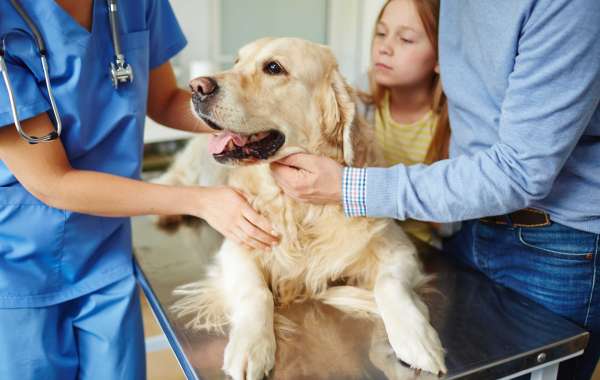When it comes to the well-being of our four-legged companions, nutrition plays a crucial role. Dogs, just like humans, require a balanced diet to maintain optimal health. One key nutrient that often takes the spotlight is Vitamin A. We delve into the significance of Vitamin A for dogs in Poland, understanding its benefits, and exploring the best sources of this essential vitamin to keep your furry friend healthy and vibrant.
The Role of Vitamin A in Canine Health:
Vitamin A is a fat-soluble vitamin that plays a vital role in various aspects of a dog's health. From promoting vision and immune function to supporting growth and development, Vitamin A is truly a powerhouse nutrient for our canine companions.
- Vision and Eye Health
One of the primary functions of Vitamin A is its involvement in maintaining optimal vision and eye health in dogs. This vitamin contributes to the production of a pigment called rhodopsin, which is necessary for proper vision, especially in low-light conditions. Adequate Vitamin A levels help ensure that your dog can see clearly and navigate their environment with ease.
- Immune System Support
A robust immune system is crucial for dogs to fend off infections and diseases. Vitamin A plays a vital role in supporting immune function, helping dogs fight off pathogens and stay healthy. It enhances the production and activity of white blood cells, which are essential components of the immune system, contributing to a stronger defense against various illnesses.
- Growth and Development
Vitamin A for dogs is especially important during a dog's growth and development stages. It supports the formation and maintenance of healthy skin, fur, and mucous membranes. Adequate Vitamin A intake is necessary for proper cell differentiation, ensuring that your furry friend's organs and tissues develop optimally.
Vitamin A-Rich Foods for Dogs in Poland:
Ensuring that your dog receives an adequate amount of Vitamin A is essential for their overall well-being. Fortunately, there are various food sources available in Poland that are rich in this essential nutrient.
- Liver
Liver, whether it be beef, chicken, or pork, is a fantastic source of Vitamin A for dogs. It is important to note that liver should be fed in moderation, as excessive consumption may lead to Vitamin A toxicity. Consult your veterinarian to determine the appropriate amount of liver to incorporate into your dog's diet.
- Fish
Certain types of fish, such as salmon and tuna, are not only rich in omega-3 fatty acids but also contain significant amounts of Vitamin A. These fish can be a healthy addition to your dog's diet, providing both essential nutrients for their well-being.
- Leafy Green Vegetables
Leafy green vegetables, such as spinach, kale, and broccoli, offer a wealth of health benefits for dogs. In addition to being packed with vitamins and minerals, these greens are a good source of Vitamin A. Consider steaming or lightly cooking them to make the nutrients more accessible for your canine companion.
- Carrots
Carrots are a popular snack for dogs, and they are also an excellent source of Vitamin A. These crunchy, orange vegetables not only provide important nutrients but also contribute to good dental health by promoting chewing and reducing plaque buildup.
- Vitamin A Supplements
In some cases, your veterinarian may recommend Vitamin A supplements for your dog, especially if they have a specific health condition or a deficiency. It is crucial to follow your veterinarian's guidance and dosage instructions when administering any supplements to your furry friend.
Ensuring Adequate Vitamin A Intake for Dogs in Poland:
While it is important to provide Vitamin A-rich foods to your dog, it is equally crucial to ensure the right balance in their overall diet. Here are some guidelines to help you ensure your dog's Vitamin A intake is appropriate:
- Consult with a Veterinarian
Before making any significant changes to your dog's diet or introducing new supplements, it is essential to consult with a veterinarian. They can assess your dog's individual needs and provide tailored advice to ensure their nutritional requirements are met.
- Variety and Balance
A balanced diet is key to meeting all of your dog's nutritional needs. Incorporate a variety of foods that provide essential nutrients, including Vitamin A, to support your dog's overall health. Remember to consider portion sizes and adjust the quantities based on your dog's size, age, and activity level.
- Regular Monitoring
Regularly monitor your dog's overall health and well-being. Observe their energy levels, coat condition, and overall vitality. If you notice any changes, consult with your veterinarian to determine if adjustments to their diet or supplementation may be necessary.
Conclusion:
Vitamin A for dogs is an essential nutrient that plays a significant role in supporting canine health in Poland. From promoting vision and immune function to supporting growth and development, this vitamin is vital for your furry friend's well-being. By incorporating Vitamin A-rich foods and following proper nutritional guidelines, you can ensure that your dog receives the necessary Vitamin A intake to maintain optimal health and vitality. Remember to consult with your veterinarian for personalized advice and recommendations for your dog's specific needs.










